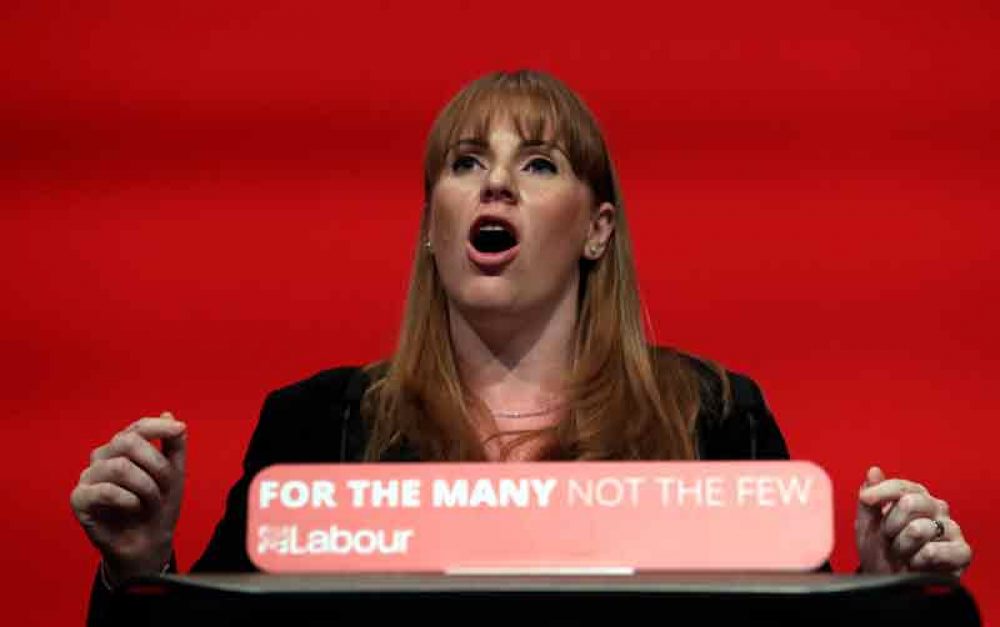The Labour Party has pledged to invest one billion pounds to deliver T-levels, as its shadow education secretary spelt out her plans for a new National Education Service.
Angela Rayner (pictured above) used her speech at the party’s annual conference in Brighton this afternoon to heap praise on the FE sector but warned that the Conservatives are “happy to manage a decline”.
“FE isn’t just for those who ‘didn’t get the chance’ to go to university,” she said. “It serves the majority of young people. They too deserve a world-class education.”
“Instead, the Tories are happy to manage decline. I will only be happy when we manage success. So we will invest a billion pounds into a further education service to deliver T-levels that are a true gold standard.”
The National Education Service is Labour’s umbrella term for a raft of reforms, including increases in schools funding, free adult education and the return of the Education Maintenance Allowance for 16- to 19-year-olds.
Ms Rayner today released a draft 10-point charter detailing what the National Education Service would do:
- Be guided by the principle that education has “intrinsic” value in giving all people “access to the common body of knowledge we share, and practical value in allowing all to participate fully in our society”.
- Provide education that is “free at the point of use, available universally and throughout life”.
- Provide education “for the public good”. All providers within the National Education Service shall be bound by the principles of the charter.
- Work alongside the health, sustainability, and industrial policies set by government.
- Commit to “tackling all barriers to learning”, and providing high-quality education for all.
- Provide all forms of education, integrating academic, technical and other forms of learning within and outside of educational institutions, and treating all with equal respect.
- Be structured to “encourage and enhance” cooperation across boundaries and sectors.
- Be accountable to the public, communities, and parents and children that it serves. Schools, colleges, and other public institutions within the National Education Service “should be rooted in their communities”, with parents and communities empowered, via appropriate democratic means, to “influence change where it is needed and ensure that the education system meets their needs”. The “appropriate democratic authority” will set, monitor and allocate resources, ensuring that they meet the rights, roles, and responsibilities of individuals and institutions.
- Aspire to the “highest standards of excellence and professionalism”. Educators and all other staff will be “valued as highly-skilled professionals”, and appropriate accountability will be balanced against giving “genuine freedom of judgement and innovation”. The National Education Service shall “draw on evidence and international best practice, and provide appropriate professional development and training”.
- Have the “utmost regard to the well-being of learners and educators”, and its policies and practices, particularly regarding workload, assessment and inspection will “support the emotional, social and physical well-being of students and staff”.
____________________________________________________________
National Education Service – Labour’s 10 point charter in full
The key principles are:
- Education has intrinsic value in giving all people access to the common body of knowledge we share, and practical value in allowing all to participate fully in our society. These principles shall guide the National Education Service.
- The National Education Service shall provide education that is free at the point of use, available universally and throughout life.
- The National Education Service provides education for the public good and all providers within the National Education Service shall be bound by the principles of this charter.
- High quality education is essential to a strong and inclusive society and economy, so the National Education Service shall work alongside the health, sustainability, and industrial policies set by democratically elected government.
- Every child, and adult, matters, so the National Education Service will be committed to tackling all barriers to learning, and providing high-quality education for all.
- All areas of skill and learning deserve respect; the National Education Service will provide all forms of education, integrating academic, technical and other forms of learning within and outside of educational institutions, and treating all with equal respect.
- Educational excellence is best achieved through collaboration and the National Education Service will be structured to encourage and enhance cooperation across boundaries and sectors.
- The National Education Service shall be accountable to the public, communities, and parents and children that it serves. Schools, colleges, and other public institutions within the National Education Service should be rooted in their communities, with parents and communities empowered, via appropriate democratic means, to influence change where it is needed and ensure that the education system meets their needs. The appropriate democratic authority will set, monitor and allocate resources, ensuring that they meet the rights, roles, and responsibilities of individuals and institutions.
- The National Education Service aspires to the highest standards of excellence and professionalism. Educators and all other staff will be valued as highly-skilled professionals, and appropriate accountability will be balanced against giving genuine freedom of judgement and innovation. The National Education Service shall draw on evidence and international best practice, and provide appropriate professional development and training.
- The National Education Service must have the utmost regard to the well-being of learners and educators, and its policies and practices, particularly regarding workload, assessment, and inspection, will support the emotional, social and physical well-being of students and staff.
Read the full text of Ms Rayner’s speech on our sister paper, FE Week









Your thoughts